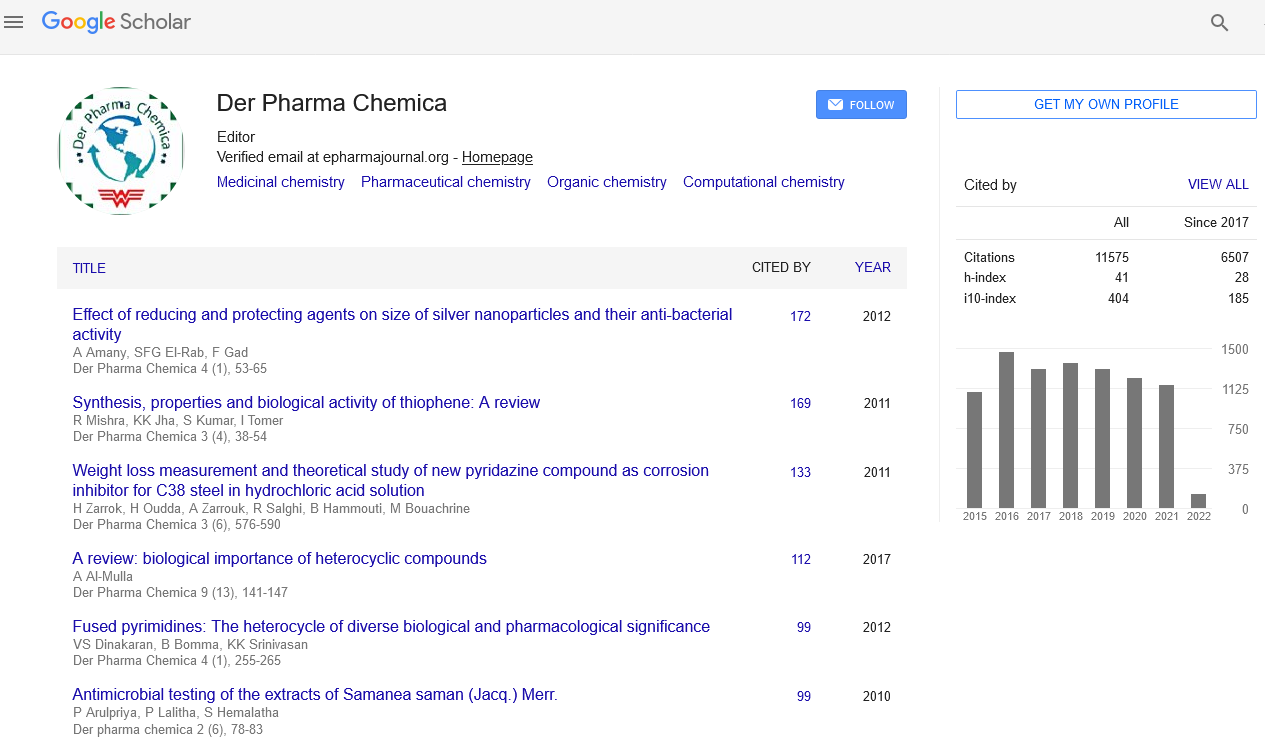Abstract
Quercetin protects against thioacetamide induced hepatotoxicity in rats through decreased oxidative stress biomarkers, the inflammatory cytokines; (TNF-�±), (NF-�º B) and DNA fragmentation
Author(s): Nehal A Afifi, A Ramadan, W El-Eraky, Abeer AA Salamab, Amany A El-Fadaly and Azza HassanThe present study aimed to investigate the hepatoprotective mechanisms of quercetin and silymarin in experimentally induced hepatic toxicity in rats. Mature Albino Wister rats were orally daily treated with quercetin (50 and 100 mg/kg), silymarin (50 mg/kg) for 21consecutive days, then were injected intraperitoneal with TAA (300 mg/Kg, i.p.) twice with 24 hours interval in the last two days of the experiment to induce hepatotoxicity. Afterwards, blood samples were withdrawn from all rats and liver tissue were isolated. Sera separated for determination of serum liver function tests. Liver homogenates were used for assessment of oxidative stress biomarkers, inflammatory cytokines, hepatocellular apoptosis and histopathological examinations. Moreover, hepatic DNA fragmentation levels were examined calorimetrically by diphenylamine (DPA) and electrophoreticaly by agarose gel electrophoresis. Results of the present study revealed that oral administration of quercetin (50 and 100 mg/kg) for 21 days significantly improved the elevated liver enzymes (AST and ALT), alkaline phosphatase and total bilirubin with significant decreased oxidative stress biomarkers measured as malondialdehyde (MDA) , nitric oxide (NO) and reduced glutathione (GSH) contents in liver homogenate. In addition, quercetin decrease the elevated inflammatory cytokine; tumor necrosis factor alpha (TNF-α), nuclear factor kappa beta (NF-κ B) and DNA fragmentation in a dose dependant manner. Finally, it can be concluded that quercetin displayed a protective effect against TAAinduced hepatic toxicity via mechanisms involving the alleviation of oxidative stress, antioxidant potential, and attenuation of inflammation and inhibition of hepatocellular apoptosis.
Select your language of interest to view the total content in your interested language
Google Scholar citation report
Citations : 25868
Der Pharma Chemica received 25868 citations as per Google Scholar report
Der Pharma Chemica peer review process verified at publons
DOWNLOADS




